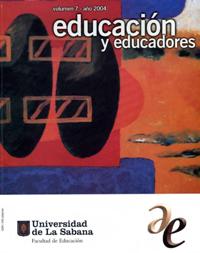Teoría, práctica y aprendizaje profesional
Keywords:
action theories, technical theories, human or interpersonal theories, single-loop learning, double-loop learning.Abstract
The paper deals with the action theories from the perspective of Chris Argyris and Donald Schön and their application to professional practice and effectiveness. Proposals for the redesign of professional education are put forward and conclusions and recommendations are formulated for the application of Model II of action theories to the formation of administrators and to the generation of organizational contexts which are favourable to effectiveness.
Deliberate behaviour is a consequence of action theories.The ones having “technical” character establish what the specific techniques that professionals must use in the substantive tasks of their practice are.“Human” or interpersonal theories determine how professionals must interact with their clients and other persons.
There exists a theory which is coherent with what persons say and affirm they believe, and another one which is consistent with what they do.A gap exists between how individuals want to think what they want to do (adopted theory) and how they behave in real life (theory of use). Effectiveness would be the result of the congruence between the theory in use and that which is adopted.
There are two responses to bridge the gap: single-loop learning and double-loop learning.A person can learn to either adopt new action strategies to achieve the actions governing their behaviour (single-loop learning) or change the governing variables themselves (double-loop learning).
Model I (single-loop learning) is the prevailing theory in use and Model II (double-loop learning) is the alternative.The latter is more appropriate for professional action and formation, as it reduces the negative consequences of Model I and enhances learning, development and effectiveness.
Downloads
Downloads
How to Cite
Issue
Section
License
1. Proposed Policy for Journals That Offer Open Access
Authors who publish with this journal agree to the following terms:
-
This journal and its papers are published with the Creative Commons License CC BY 4.0 DEED Atribución 4.0 Internacional. You are free to share copy and redistribute the material in any medium or format if you: give appropriate credit, provide a link to the license, and indicate if changes were made; don’t use our material for commercial purposes; don’t remix, transform, or build upon the material.






